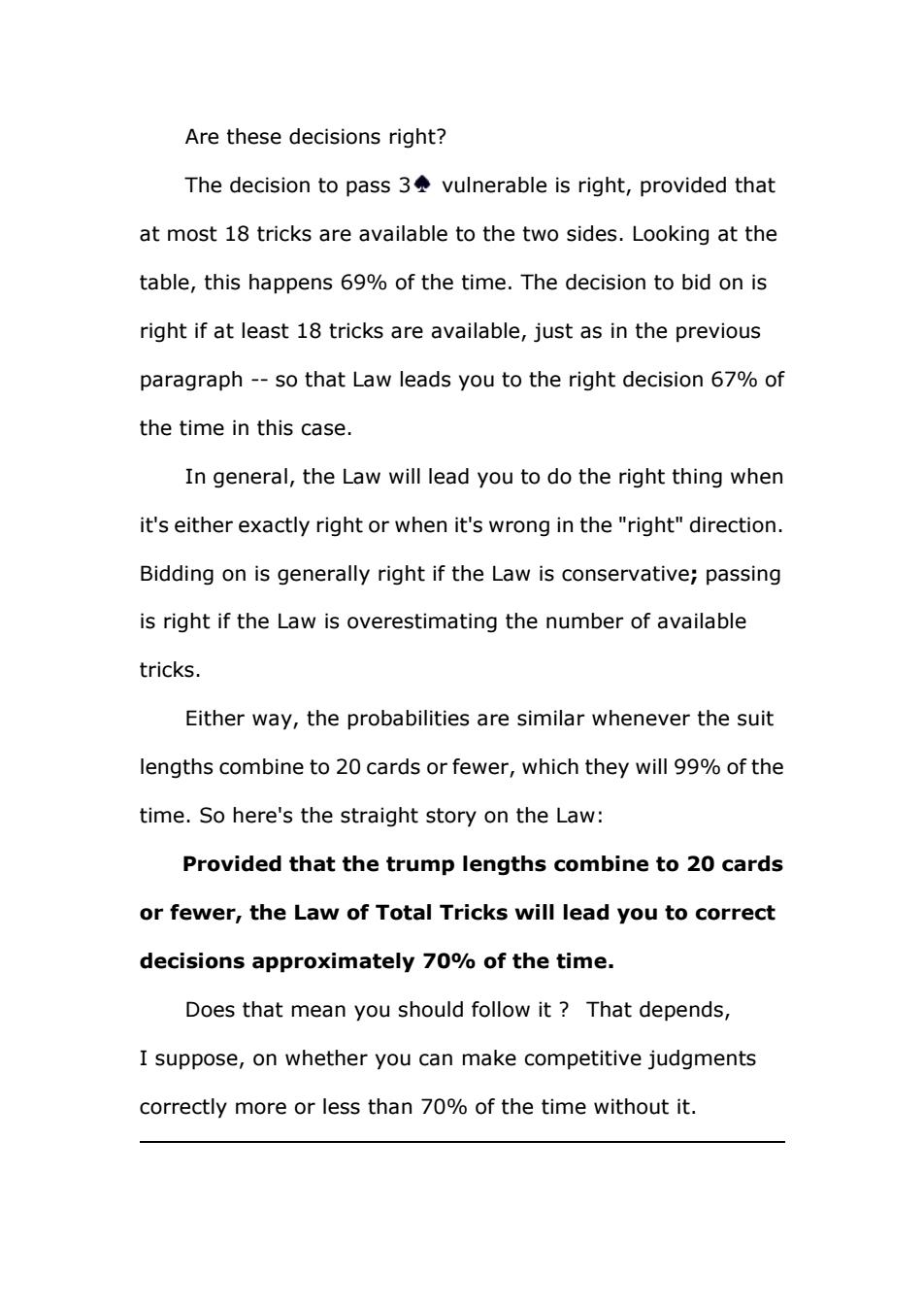正在加载图片...

Are these decisions right? The decision to pass 3 vulnerable is right,provided that at most 18 tricks are available to the two sides.Looking at the table,this happens 69%of the time.The decision to bid on is right if at least 18 tricks are available,just as in the previous paragraph--so that Law leads you to the right decision 67%of the time in this case. In general,the Law will lead you to do the right thing when it's either exactly right or when it's wrong in the "right"direction. Bidding on is generally right if the Law is conservative;passing is right if the Law is overestimating the number of available tricks. Either way,the probabilities are similar whenever the suit lengths combine to 20 cards or fewer,which they will 99%of the time.So here's the straight story on the Law: Provided that the trump lengths combine to 20 cards or fewer,the Law of Total Tricks will lead you to correct decisions approximately 70%of the time. Does that mean you should follow it That depends, I suppose,on whether you can make competitive judgments correctly more or less than 70%of the time without it.Are these decisions right? The decision to pass 3 vulnerable is right, provided that at most 18 tricks are available to the two sides. Looking at the table, this happens 69% of the time. The decision to bid on is right if at least 18 tricks are available, just as in the previous paragraph -- so that Law leads you to the right decision 67% of the time in this case. In general, the Law will lead you to do the right thing when it's either exactly right or when it's wrong in the "right" direction. Bidding on is generally right if the Law is conservative; passing is right if the Law is overestimating the number of available tricks.Either way, the probabilities are similar whenever the suit lengths combine to 20 cards or fewer, which they will 99% of the time. So here's the straight story on the Law: Provided that the trump lengths combine to 20 cards or fewer, the Law of Total Tricks will lead you to correct decisions approximately 70% of the time. Does that mean you should follow it ? That depends, I suppose, on whether you can make competitive judgments correctly more or less than 70% of the time without it